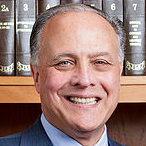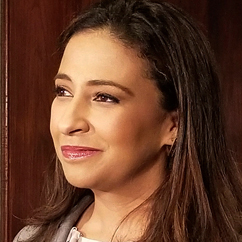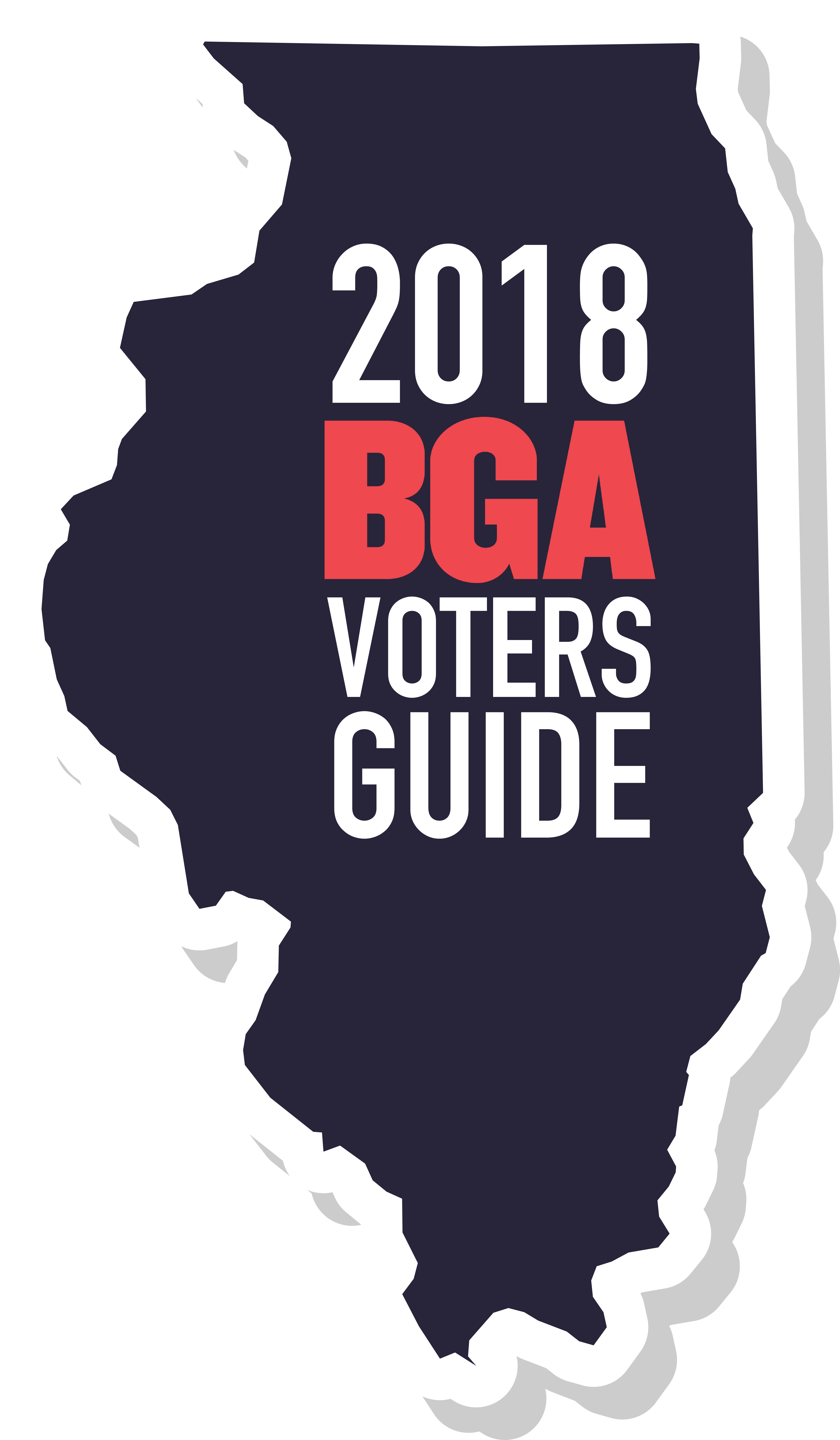Attorney General (GOP)
Choose the candidates
Candidates:
Questions:
-
Elected offices held and civic involvement
 Grasso
Grasso- Member of the DuPage County Board (2012-present)
- Mayor of Burr Ridge from 2005-2012
- Chairman of the DuPage 911 Board (2014-present)
- President of DuPage Mayors & Managers (2010-11)
- Member of the DuPage County Board of Health (1999-2011)
- Trustee of the Thomas Ford Memorial Library Foundation and its governing board (1990-95), as well as a former Member of the Parish Council and School Board for St. John of Cross Parish and grammar school in Western Spring, Illinois.
 Harold
Harold- Commissioner on the Illinois Supreme Court Commission on Professionalism
- Member of Illinois Supreme Court Committee on Equality
- Board of Directors of Prison Fellowship, the world’s largest outreach to inmates and their families
-
1. How will you, as attorney general, work for transparent, accountable, efficient government?
 Grasso
GrassoDuring transition, I would assemble an experienced, complete and bi-partisan transition team that would review the office for ineffectiveness, inefficiencies, and reorganization of divisions and personnel needs - with an eye toward increasing technology of the attorneys and staff to achieve these goals. I have been a proponent of ACT in DuPage County – Accountability, Consolidation and Transparency – and will bring those concepts and goals to the office of the Attorney General. First among equals is consolidation – I know there will be efficiencies achieved in measured consolidation of the 11 divisions that now exist – I will explore consolidating the divisions of Crime Victims, Defending Rights and Safe Communities. That said, I will seriously consider repurposing the Meth division into Addictive Drugs to address not only meth, but heroin and opioids that are adversely affecting individuals and families throughout Illinois. Protecting Children by scrutinizing DCFS placements and monitoring, Women from sexual harassment in their work and professions, and Seniors from financial predators that I will be pursued criminally in cooperation with the states attorneys of Illinois all will be in the forefront of my obligations as Attorney General.
But, first and foremost, we must use the power of the Attorney General to investigate, pursue and refer for prosecution the perpetrators of the clout epidemic at the root of Illinois’ political corruption. I will follow the clout and the money tentacles to the body of corruption we all know is far too bold and prevalent. I will use the bully-pulpit of the office, its power of subpoena, the AG investigators, and lawsuits to bring Illinois’ corruption to the forefront to change the culture of politics in our state – and save Illinois from financial destruction.
 Harold
HaroldAs Attorney General, I would establish clear guidelines for determining when the Office took action, with such criteria to include: (i) Whether the Office was statutorily required to take action; (ii) Whether a potential constitutional or statutory violation was involved; (iii) Whether another governmental entity was better situated to initiate the action; and (iv) whether Illinoisan’s interests were directly at issue. The goal would be to ensure that independent decision-making was occurring, the Attorney General’s Office was involved in legal issues—as opposed to political issues, and the principles of separation of powers and federalism were being upheld.
Additionally, I would arrange for ethics trainings for Attorney General’s Office staff and lawyers to be conducted by outside experts who specialize in properly identifying and resolving some of the unique complexities that arise in State Attorney’s General offices. Moreover, to the extent necessary and possible, I would attempt to allocate additional resources to the Office of Public Access Counselor to enhance its ability to secure compliance with the Freedom of Information Act and the Open Meetings Act.
I also would use the office’s express statutory authority to combat government corruption and would work with the General Assembly to help draft legislation to expand the Illinois Attorney General’s tools to investigate and prosecute government corruption. Finally, the Illinois Attorney General is afforded a powerful bully pulpit that should be used to vigorously highlight and condemn public corruption, and I would use it to do so.
-
2. What will your priorities be as attorney general?
 Grasso
GrassoFirst, I will direct the attorneys and investigators of the AG’s office to investigate the clout based, corrupt property tax assessments system. We must restore confidence to the people of Illinois that they are being treated equally and fairly when property taxes are being assessed. We must not tolerate the status quo and the political corruption at any level. The public should know that when elected, the powers that be, at all levels of government, should be on high alert that the Office of the Illinois Attorney General will not tolerate any form of cheating the system.
We also must continue to serve as the chief litigator for the people of the state of Illinois, working to protect all, but especially those who are most likely to become victims. The people should know that their Attorney General can and will represent them in court, try cases and argue appeals. I will do this by vigorously pursuing the corrupt, the financial predators, big pharma and enforcing the Consumer Fraud Act and the Public Utilities Act.
 Harold
HaroldIn addition to ensuring that the Office’s statutory responsibilities were being efficiently and effectively fulfilled in a nonpartisan manner, I would prioritize: (i) enhancing the Office’s efforts and investigative tools to combat public corruption; (ii) coordinating statewide efforts to address the opioid epidemic in Illinois; (iii) collaborating with the legislature to draft and enact workers’ compensation and criminal justice reform measures; and (iv) protecting Illinoisans from harassment, including peer-to-peer harassment in schools and sexual harassment within State government and the workforce at large.
To the extent possible, I would attempt to allocate additional resources to: (i) the Criminal Enforcement Division for the purposes of combating public corruption and coordinating statewide efforts to address the opioid epidemic; (ii) the victims assistance units for the purpose of augmenting efforts to assist victims of peer-to-peer harassment and workplace sexual harassment; and (iii) the Office of Public Access Counselor.
I also would work to foster a culture of nonpartisanship throughout the Office by setting forth rubrics for decision-making that are based on the rule of law, a balancing of the interests of all Illinoisans (regardless of background or political affiliation), and an independence from other branches of government, both at the State and Federal level.
-
3. How will you improve the Illinois Freedom of Information Act? How will you improve the Open Meetings Act?
 Grasso
GrassoFirst, I would take time to set up regional trainings to help communities understand the Open Meetings Act and make sure local governments are following the law. There is a lot of business that takes place in closed session and one thing the Office of Attorney General can do is be a better resource for what the law is and how it should be followed.
Second, I would make sure to be responsive to citizens with complaints about what is going on tin their local communities. The message I want to send to concerned citizens with issues at the local level is that they will have a friend in me.
 Harold
HaroldMy top priority with respect to Illinois’ Freedom of Information Act and Open Meetings Act is ensuring that the Public Access Counselor’s office has sufficient personnel and resources to effectuate its mandates and avoid backlogs.
-
4. How will you improve the public access counselor’s office?
 Grasso
GrassoThe public access counselor was made a permanent part of the Attorney General’s office in 2009. My goal would be to make the public access counselor more proactive than reactive. I would look at ways to do more outreach and communicate better with local communities. The best way to stop abuses of the Open Meetings Act and FOIA laws is to prevent these abuses from happening in the first place.
 Harold
HaroldThe Office of Public Access Counselor is important because it helps to ensure compliance with the Freedom of Information Act (FOIA) and the Open Meetings Act (OMA), which are essential to achieving transparency and accountability in government. The Public Access Counselor should continue its role of facilitating FOIA and OMA trainings, helping to resolve disputes over documents on an informal basis, and issuing binding opinions regarding compliance. The Attorney General’s Office also should continue to issue its Public Access Counselor Annual Report, delineating the number of requests for assistance it received during the prior year and summarizing the resolution of such requests, along with any binding opinions that were issued. This reporting and disclosure furthers the goals of governmental transparency and accountability.
Furthermore, to the extent such data is not currently being collected and reported, the Public Access Counselor should request that each public body that is covered by FOIA and the OMA quantify and report the amount of staff time and resources that is dedicated to responding to requests. When enacting FOIA, the General Assembly expressly recognized that the Act “imposes fiscal obligations on public bodies to provide adequate staff and equipment to comply with its requirements.” Accordingly, when assessing issues of burden, making recommendations regarding resource allocation, and developing best practices for public bodies, it is important for the Public Access Counselor and Attorney General to have quantifiable data from which to draw. This data also should be included in the Public Access Counselor Annual Report.
Additionally, to the extent possible, I would attempt to allocate additional resources to the Office of Public Access Counselor to enhance its ability to secure compliance with the Freedom of Information Act and the Open Meetings Act.
-
5. Will you continue the AG’s lawsuit against the City of Chicago’s police department? If so, what are the key things you hope the lawsuit will accomplish? If not, what do you think is the appropriate role of the Attorney General in Chicago policing?
 Grasso
GrassoI would want an extensive briefing on the lawsuit before making any final determination. But having said that, I am not sure obtaining federal oversight of the Chicago Police Department is the best way to solve the problems within the department. I would have to be convinced that a consent decree enabling more federal oversight is in fact in the best interest of the department and Chicago residents. The consent decree process is slow, arduous and invasive. I think we have to be careful what we ask for. I would look carefully at the lawsuit and where things stand upon taking office before making a final decision on the lawsuit.
 Harold
HaroldYes. Mayor Rahm Emanuel previously agreed to it in light of the issuance of the Justice Department’s report. If either party backs away from that agreement, then it would be exceedingly difficult to build the trust and accountability necessary to effectuate meaningful reform and ultimately enhance community policing efforts. The oversight of a federal judge and the appointment of an independent monitor will help ensure that the relevant stakeholders are represented, help minimize the influence of political interests, and help create a structured process and timeline for instituting necessary reforms. While the entry of a consent decree will not be a panacea, it will offer a constructive way forward in reforming the Chicago Police Department, protecting Chicagoans’ safety and security, equipping police officers with the tools necessary to meet their responsibilities, and upholding Constitutional rights and civil liberties.
-
6. How will you go after corruption in Illinois?
 Grasso
GrassoI will seek legislation from Springfield that will allow the AG to investigate corruption on criminal grounds and refer and cooperate with the states attorneys and federal prosecutors. I have been an advocate of cross utilization of government services, especially when the need exists and the resources to address them are insufficient. The inherent investigative roles and duties of the AG can be instrumental in the fight against corruption. That investigation should extend to empaneling and presenting evidence of corruption to a Grand Jury. The AG can then refer the matter, if warranted, to the appropriate states attorney or federal prosecutors. It is time to combine resources and work together to rout the clout in Illinois. As an active litigator in the area of legal ethics/lawyer malpractice for thirty years, as the next Attorney General, I will advocate for and propose an ethics law on the basis of semblance of impropriety that will prohibit and bar any immediate family member of a Legislator or constitutional officer or Supreme Court justice from:
- holding a statewide constitutional office or being a justice of the Supreme Court;
- being a registered state lobbyist; or
- heading any state agency.
 Harold
HaroldThe current Illinois Attorney General has not used the full measure of the Office’s power to investigate allegations of public corruption—such as allegations of patronage hiring and improper awarding of government grants—and I would be proactive in fully utilizing those powers. Additionally, I would advocate for the expansion of the Office’s investigative tools, such as subpoena and grand jury powers, to enhance the Illinois Attorney General’s ability to fight public corruption. I also would use the Office’s bully pulpit to highlight the real costs government corruption imposes upon Illinoisans and advocate for a government that serves the people’s interests—not partisan or special interests.
-
7. What should be the attorney general’s role in responding to federal policies and politics?
 Grasso
GrassoFor far too long the office has been held hostage by politics alliances, the Illinois Attorney General must be above politics at all levels, always. The Illinois Attorney General’s job is to advocate, work to legislate and to litigate on behalf of the people of Illinois.
The Attorney General must enforce state laws and regulations in cooperation with all units of government such as municipal and prosecutors, police and State’s Attorneys to the highest levels of the justice department.
I would not go into the role of Attorney General looking for ways to insert the office into federal issues. My focus would be on routing out corruption, addressing the opioid crisis in Illinois and advocating for real reforms in Illinois. I think there is enough to do in Illinois without getting bogged down by federal issues and concerns.
Having said this, I certainly would not shy away from responding to federal issues where I think it would be appropriate and where I think those federal policies will be benefit or a harm to Illinois residents.
 Harold
HaroldThe Illinois Attorney General’s Office has an obligation to take legal action against any federal administration’s policy which conflicts with either the U.S. Constitution or Illinois law in an area where the State has primary jurisdiction. However, if the Attorney General simply disagrees with a federal administration’s policy but believes it to have been constitutionally issued, it would be appropriate for the Attorney General to express dissent but inappropriate for the Attorney General Office’s to take legal action and involve the State in a lawsuit devoid of legal merit.
